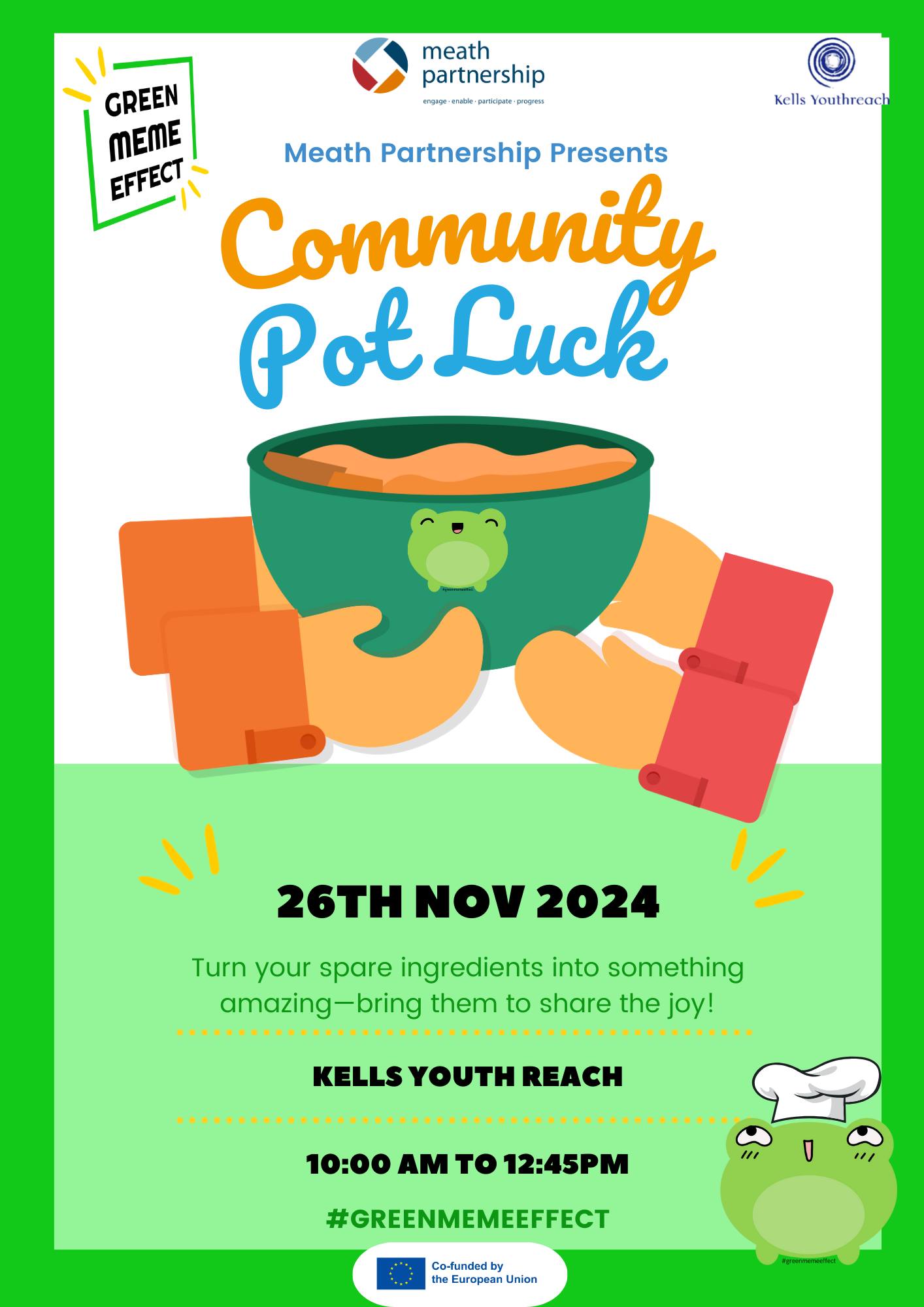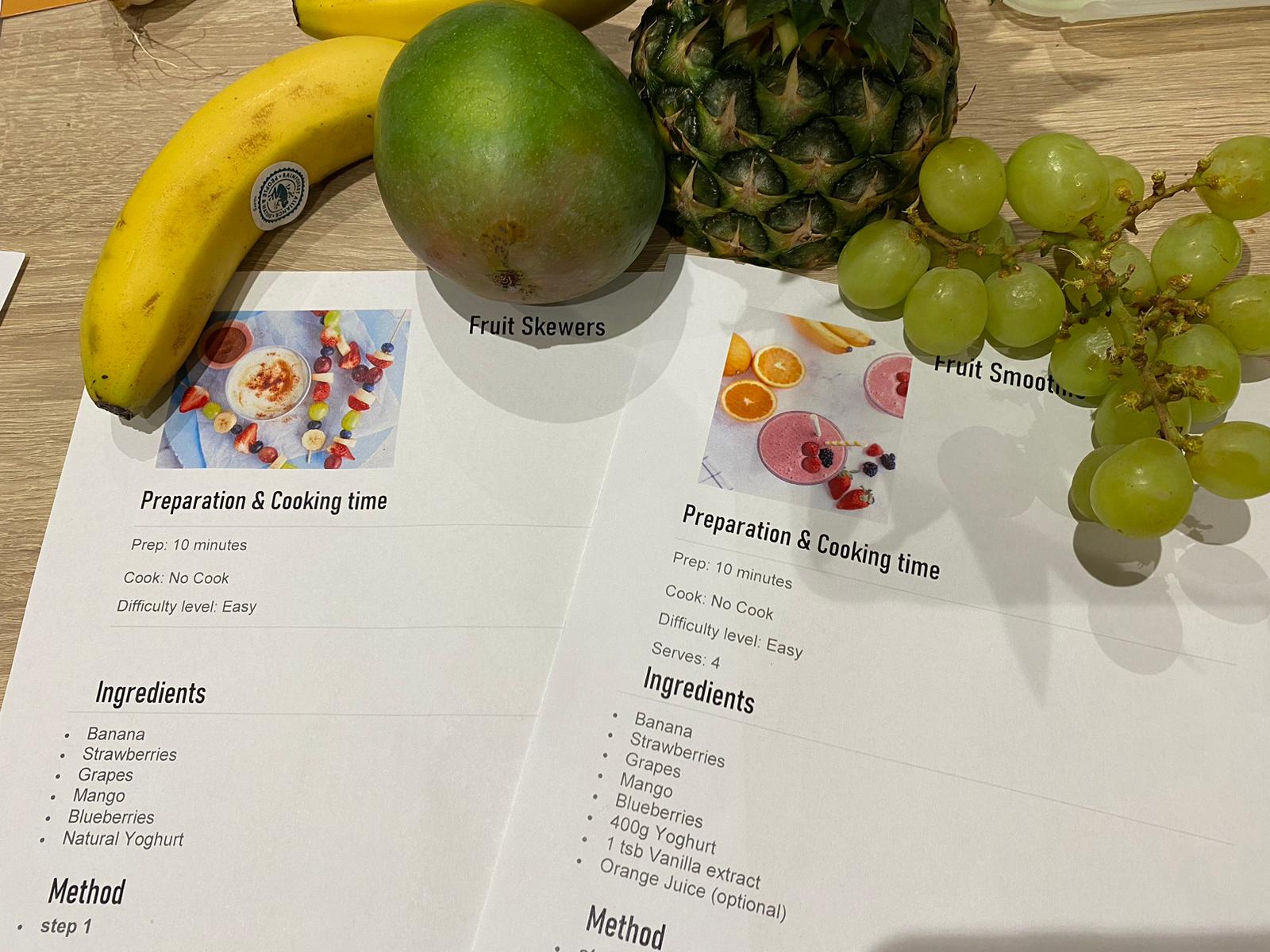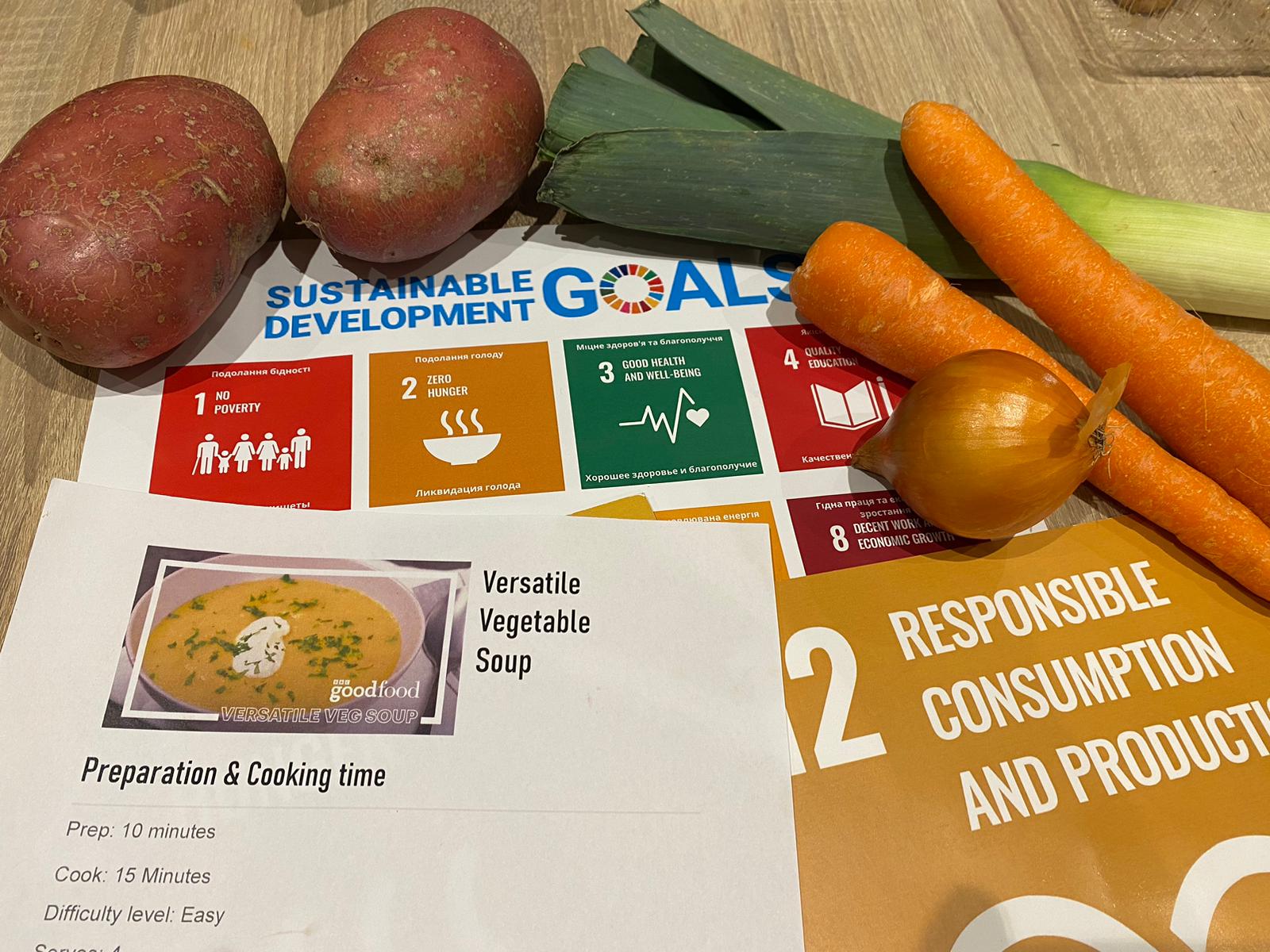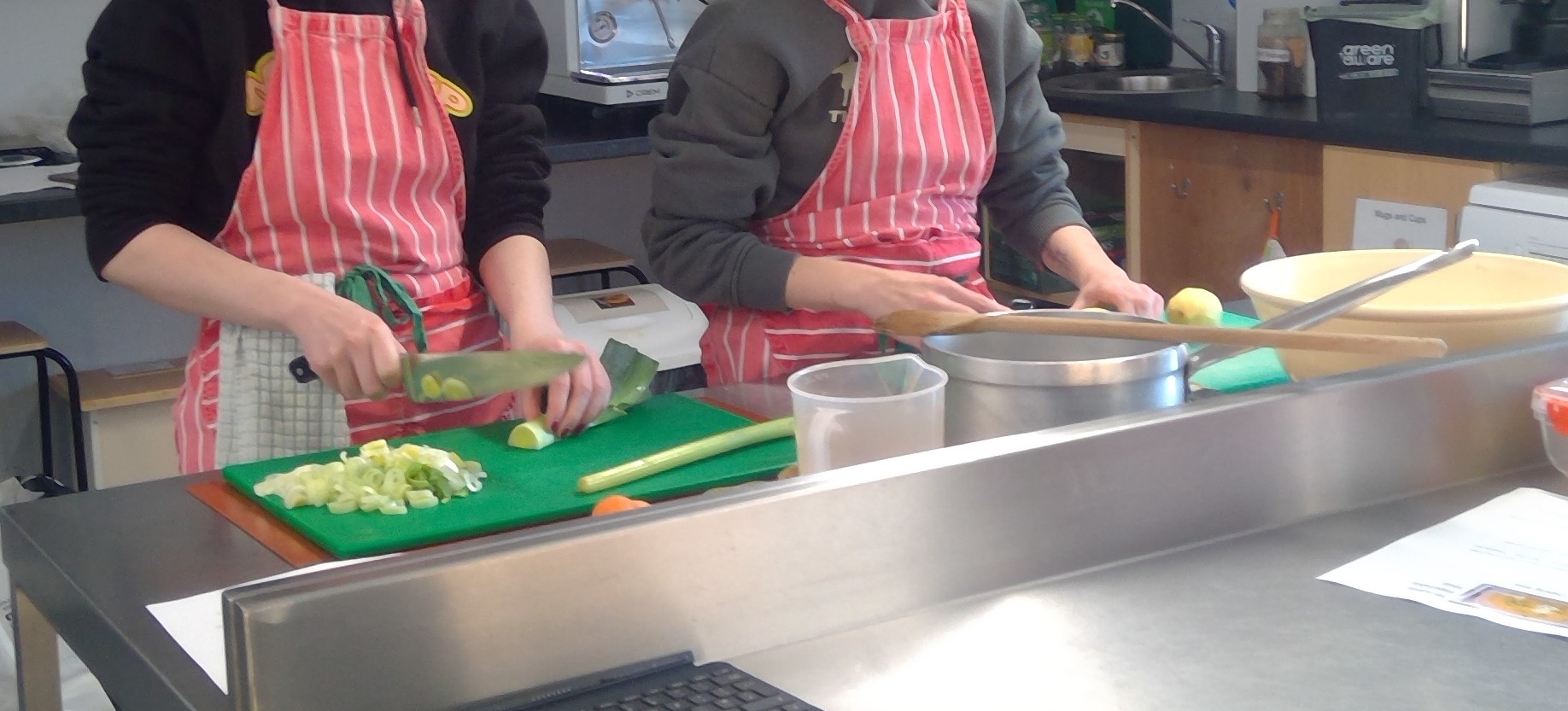Community Potluck in Ireland
The Community Potluck event was an inspiring and interactive session that combined learning, cooking, and sustainability. The event was held on November 26, 2024, it was attended by 12 young people who explored themes around food-related Sustainable Development Goals (SDGs), food waste, and ways to reduce it.
Innovative Approach to Food Preservation
Participants brought fruits and vegetables approaching their best-by dates, challenging the conventional notion of food disposal. Instead of discarding these items, the workshop emphasized their potential value and culinary versatility.
Collaborative Cooking Methodology
The workshop facilitator provided staple ingredients, including grains and spices, to support participants' brought produce. This strategy encouraged a comprehensive approach to ingredient utilization and minimized potential food waste.
Structured Learning Through Practical Experience
During the workshop, participants broke into small groups to cook together. Each group had a special job: making a vegetable soup, creating fruit smoothies, or preparing fruit skewers. These weren't just ordinary cooking tasks. They were chances to learn how to use fruits and vegetables that might normally be thrown away.
As they cooked, the groups started talking about important food topics. They discussed how to understand food labels, which can be confusing sometimes. People shared tips about keeping food fresh longer and how to store different ingredients. They talked about creative ways to use food that might look a bit old but is still perfectly good to eat.
The conversations went beyond just cooking. Participants learned how their everyday choices about food can help the environment. They discovered that using almost-expired produce isn't just about saving money – it's about reducing waste and being more responsible with food resources.


Educational Objectives
The workshop aimed to:
- Demonstrate practical food waste reduction techniques
- Enhance participants' culinary skills
- Promote environmental consciousness
- Foster community engagement around sustainability
Key Outcomes
Participants gained:
- Practical knowledge about food preservation
- Enhanced cooking confidence
- Understanding of sustainable consumption principles
- Insights into individual environmental impact

Conclusion:
This workshop exemplified how small, collective actions can contribute to significant environmental improvements. By reimagining near-expired food as a valuable resource, participants learned that sustainable practices can be both accessible and enjoyable.
The event illustrated that responsible food management is not about limitation, but about creativity, education, and community collaboration. Each participant left with new skills, perspectives, and motivation to implement sustainable practices in their daily lives.
